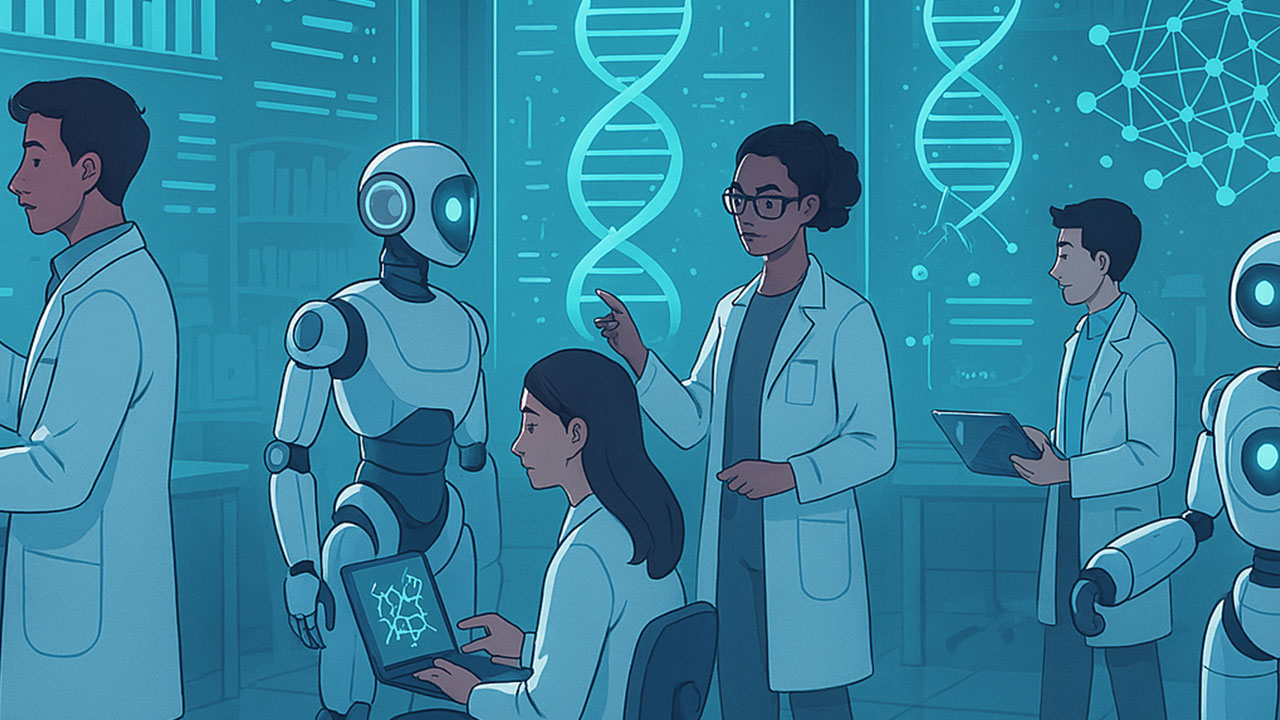content body
As the world innovates ways for artificial intelligence (AI) to enhance and streamline efficiency, Auburn University researchers are deploying its various iterations in their work.
From adding elements to student researchers’ skill sets and creating research collaboration networks, to extracting detailed and specific information from volumes of data and applying AI to field research, Auburn’s numerous researchers have made substantial strides in employing the advancing technology to boost their efforts.
For Lana Narine, an associate professor of geospatial analytics in the College of Forestry, Wildlife and Environment, AI implementation has taken the form of data integration and predictive modeling in her multi-scale mapping pursuits. Narine’s Geospatial Analytics Lab “studies the synergistic use of Earth Observation data to better understand, characterize and monitor ecosystems at multiple spatial scales.”
Her work involves the extraction of information from multiple sources of data, including light detection and ranging (LiDAR) observations from airborne and spaceborne platforms. Combining remotely sensed data with field-based observations, Narine said, is foundational for her team’s research, and AI enables the processing, extracting and analysis of meaningful data collected from multiple sources, such as space-based tools, drones and other aerial systems.
“Machine learning and deep learning methods are essential to my lab’s research for tasks like species classification, land cover mapping, disease and invasive species detection and the estimation and mapping of forest attributes,” Narine said. “Each of these require the integration and analysis of multiple sources of data, which are handled efficiently with AI techniques. AI thrives on large volumes of data, which aligns perfectly with the nature and scope of my research program.”
Using AI has helped Narine’s team streamline its research efforts while saving time on several of its grant-funded projects.
“AI is core to my lab’s research, specifically geospatial research in forestry and natural resources, given its ability to handle large, complex datasets across space and time,” she said. “AI enables efficient integration of data, automated delineation and characterization of ecosystem attributes and offers predictive capabilities to obtain accurate outputs.”
Engineering advancements
In the Samuel Ginn College of Engineering, Associate Dean for Research Allan David and AU-CAICE Director Gerry Dozier have assembled a team of professionals and students to help accelerate interdisciplinary research by connecting experts across multiple fields. Through the Auburn University Subject Matter Experts (AUSME) — an AI-powered internet tool that links researchers from varying disciplines — the team has created a robust network of researcher profiles using a database of faculty publication records, citation metrics, co-author networks and academic backgrounds.
The result is a searchable AUSME site that can connect researchers seeking collaboration opportunities.
In addition, Engineering has created the AI@AU initiative, a university-wide computational infrastructure focused on cutting-edge AI research and education.
As a result of their AI-related efforts, Auburn researchers have leveraged its use into funding and awards. For instance, Michael Howard, an assistant professor in chemical engineering, recently earned an NSF CAREER Award for a computer-modeling approach to engineer drying-induced assembly of colloidal-particle coatings such as paint.
The college’s newest research center — the Auburn University Center for Artificial Intelligence and Cybersecurity Engineering (AU-CAICE) — was created to highlight pioneering advancements in AI-driven cybersecurity solutions. Housed in the Department of Computer Science and Software Engineering, the center boasts more than two dozen faculty members representing various disciplines and is committed to advancing research related to AI and cybersecurity.

Makeela Wells has tasked her undergraduate students with using AI as a research assistant.
Multitude of applications, implementations
AI also has helped faculty discover novel approaches to research projects of all kinds, and several researchers have published papers related to the ever-evolving technological advancement. Engineering has created a repository of AI research papers authored by AI@AU faculty that showcases the great work being done across several disciplines.
Other faculty have implemented AI into the classroom, designing assignments that utilize its far-reaching power as a generative engine. Makeela Wells, an assistant professor of sociology in the College of Liberal Arts, has tasked her undergraduate students with using AI as a research assistant in her sociology research methods course.
Wells said the Microsoft Copilot-based exercise helps students refine important research tasks, supporting proposal development.
“Research methods courses have consistently been shown to be challenging classes for undergraduate students because they require learning new concepts and applying these concepts to produce a research proposal or paper,” Wells said. “Within the sociology discipline, students often feel nervous about their ability to complete a research proposal. I wanted to examine whether using generative AI as a complement to, rather than a substitute for, developing basic sociological research skills would improve their confidence in conducting research.”
This is the final article in this summer’s “AI across campus” series that included an overview of Auburn’s AI implementation, a look at faculty’s utilization of AI in the classroom and a spotlight on the university’s TIGER Tech Leaders group. The Office of Communications and Marketing will continue to produce AI-related articles as the technology evolves on campus.










